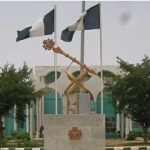According to Hon. Linus Okorie, a former member of the House of Representatives who served as the representative for the Ohaozara/Onicha/Ivo Federal Constituency, the current administration’s systematic exclusion and ethnic profiling of Igbos has tarnished Nigeria’s unity. He claimed that the millions of Nigerians who are experiencing hyperinflation, hunger, insecurity, and unemployment have only experienced discomfort as a result of the current situation.
He said this while speaking to reporters in Abakaliki on Wednesday. Among other things, he expressed concern about the South-West’s over N2 trillion infrastructure deficit compared to the South-East’s N446 billion.
He claimed that systemic exclusion, economic targeting, and an increasing trend of ethnic intimidation against the Igbo people were seriously threatening the country’s unity.
The administration’s sudden cancellation of independence celebrations, Okorie said in response to President Bola Tinubu’s anniversary address, “speaks louder than any presidential speech, serving as a silent admission of the profound hardship and discontent gripping the nation.”
“I acknowledge the President’s recitation of economic metrics, but I want to make it clear that the millions of Nigerians who are suffering from unemployment, hunger, insecurity, and hyperinflation find no solace in these numbers.
“A purposeful policy of systemic marginalization that undercuts the fundamental tenets of inclusive governance and federal character exacerbates this national hardship,” he said.
He drew attention to trends in ministerial appointments, pointing out that single states in other regions have several full cabinet-rank ministers, while the South-East only receives the constitutional minimum representation.
According to an analysis of federal projects, the South-West was given N2.5 trillion for road construction, while the South-East was only given N446 billion. This is glaring evidence of infrastructure discrimination, he continued.
He emphasized how, despite Imo, one of its component states, possessing Nigeria’s largest gas reserve, the South-East was still the only region who was not fully connected to the country’s gas pipeline infrastructure, purposefully limiting the region’s industrial potential.
On September 25, 2025, officials of the Lagos State Government, supported by strong security, demolished at least 19 buildings, including a diagnostic center, a crèche, a mall, and offices. This caused massive financial losses and forced hundreds of business owners, mostly of Igbo descent, to relocate. I also point to the extensive demolition at the Lagos International Trade Fair Complex as a prime example of economic targeting.
Okorie emphasized that the impacted traders had legitimate approvals from the Federalism Government through the Trade Fair Management Board, but their investments were abruptly destroyed. “These demolitions were carried out in a commando style, without the issuance of contravention notices and in blatant disregard for due process,” Okorie said. In addition to demolitions, I draw attention to the growing prevalence of ethnic profiling and intimidation in Lagos, which has made Igbos fearful,” he said.
He cited the 2023 elections, in which the U.S. Embassy highlighted the use of “ethnically charged rhetoric” and “disturbing acts of violent voter intimidation and suppression,” including a widely shared video in which a well-known political figure advised Igbos to “stay at home” on election day if they did not vote for the APC.





